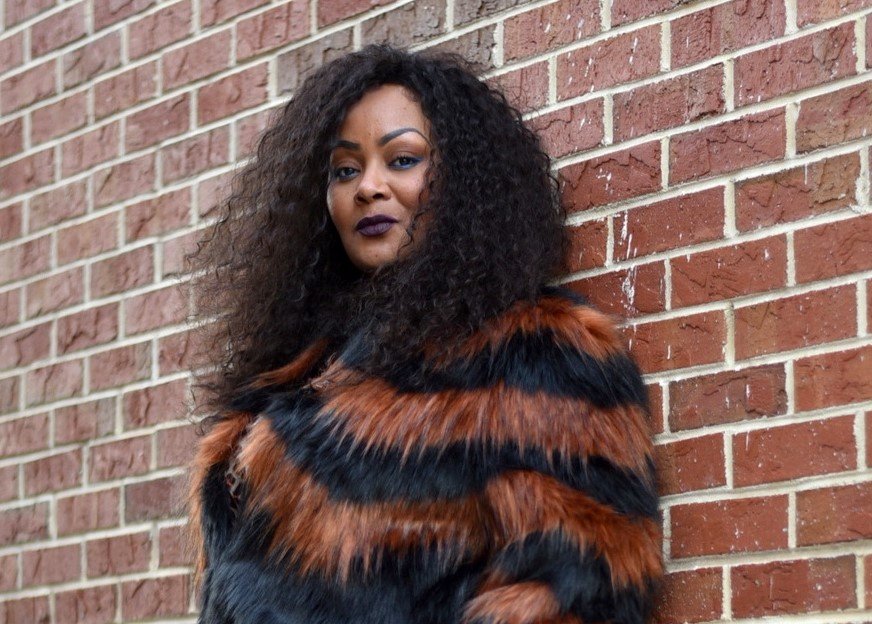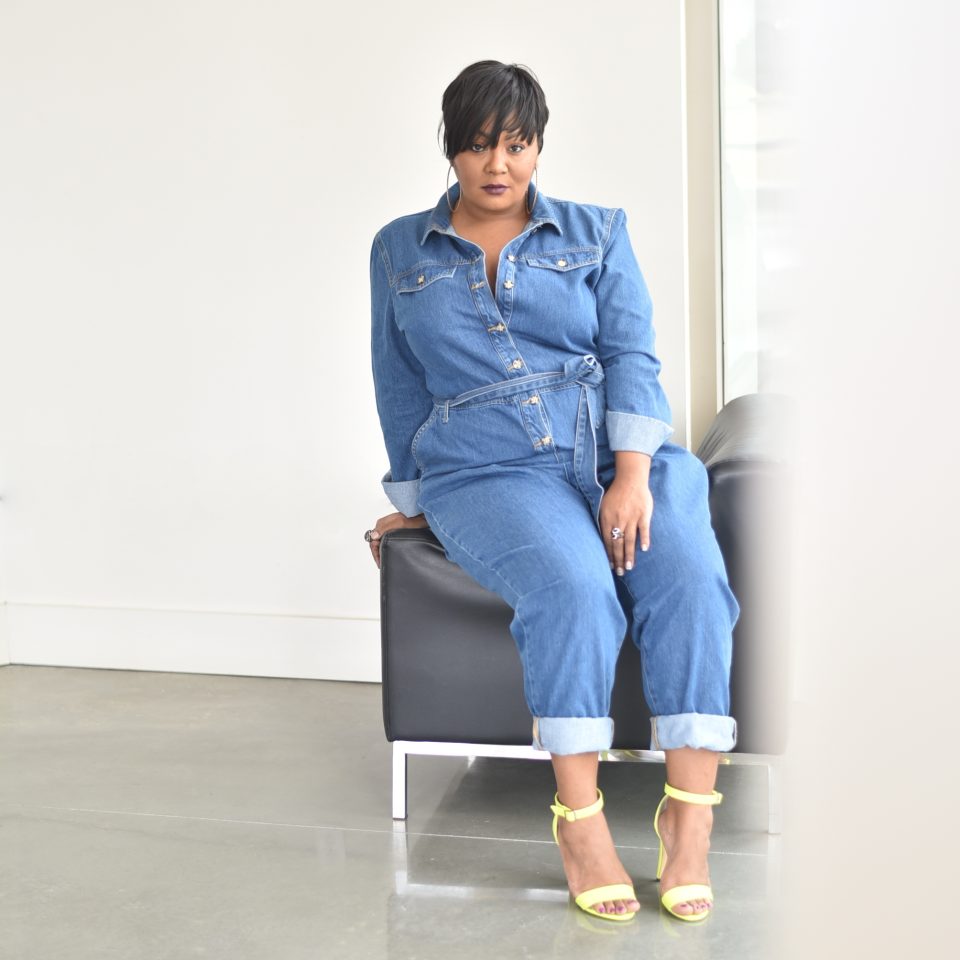CEO Marie Denee revolutionizing plus-size fashion with The Curvy Fashionista

CEO Marie Denee is revolutionizing the fashion industry with her groundbreaking platform, The Curvy Fashionista. Often referred to as the “walking wiki of plus-size fashion,” Denee has dedicated over two decades to empowering women to celebrate their curves and challenging the outdated norms in the fashion world. As the visionary founder and editor-in-chief of The Curvy Fashionista, she has created a digital space that not only showcases the latest in plus-size fashion but also fosters a community centered on inclusivity and self-love. In this exclusive “CEO to CEO” conversation with rolling out, Denee delves into her journey, sharing the wisdom and strategies that have positioned her as a leader in the industry and an inspiration to women everywhere.

Munson Steed: What would you say to that young fashionista who’s thinking about getting ready to start building her brand?
Marie Denee: There’s quite a lot, especially since the shift from founder to CEO is a hard one. It took a lot of time—I had to get rid of the imposter syndrome. I had to educate myself, lean in, and nurture my ecosystem and surroundings, and do a lot of education. I think what’s really important is to understand that you are running a business. Yes, you can follow your passion, but you have to understand you’re running a business. From that mindset, I think, for me, as I had done this as a passion for so long, even my mindset was in the wrong space. I was creating content to create revenue rather than focusing on creating revenue to create content. That mindset shift for me really … opened up my ability to see the possibilities and the potential. It allowed me to have a space to step into and really sit in. So, if I had to say anything to a budding CEO or someone who aspires to be one, it would be to really understand and learn and know the business of what you’re doing.
MS: Describe your audience and what you like to provide your audience as you engage them on your platform.
MD: Yeah. So, part of the reason why we created TCF was really about being able to provide a resource to this plus-size woman, to showcase and highlight the contemporary, fashion-forward options in one space. That was missing at the time when I had started, and I really wanted to continue to provide that, especially for someone who was looking for the same type of fashion that straight-size people have. I wanted to showcase that there are designers and retailers. The woman who I speak to, the audience and the community I serve, is that plus-size person. She’s 25 to 45, then she’s 45 to 60, and then 18 to 25. She’s looking for the options, what’s available, who’s doing what, and where she can get it. That has been something that’s at the core of what we do. Community is at the forefront of who we serve. Everything goes into how this is going to help the community, impact the community, and be a resource to the community. That has helped me stay the course, evolve, and pivot as needed, with that in mind. It’s kind of our North Star.
MS: What have you learned building collaborations with brands that no one ever told you, but you would want others to understand?
MD: It’s really about execution. For me, I’ve learned it’s about execution, being able to deliver. You can talk all the good stuff and say all the good things to get them interested, and they may even sign a contract with you, but if you cannot deliver, you’re not going to be able to continue to build on those relationships and partnerships. You have to be able to execute… What does execution look like? What is the strategy for that execution? How can I deliver excellence? I’m learning how to better lean into that process or practice. I’m learning how to be better prepared so that I can then be like, “Okay, this is what we’re going to do.” Another thing I’ve learned is that from a financial perspective, sometimes we sell ourselves short. We don’t know just how much dollars are out there that folks are playing with, you know, and someone’s like, “Oh, well, we don’t have the budget.” Yes, you do. Give me the person who does have that budget. Let’s speak to the person who can write those checks… One of the things my mom always said to me is, “Never let anyone tell you no.” For me, that has shown itself when I’m trying to work with a brand. I’m like, well, let’s figure out a way to make this work. For me, it’s really about looking at the opportunities rather than the barriers or the restrictions.
MS: What do you say to young girls to let them know that they don’t have to suffer from imposter syndrome? And share with them what it is, so they know when they have it, because I’ve seen way too many young sisters shrink, shrivel up, versus take up space and know that they need to be their optimal selves.
MD: I think it’s multi-layered. It’s about being mindful of the words you speak over yourself because words have power. It’s also important to consider the type of media you consume. The media can make you feel like you’re not worthy or enough. But because of social media and the digital space, we now have the opportunity to seek out media where we can see ourselves, be inspired, and be motivated to do and be the things we want to be. Imposter syndrome is when we tell ourselves, or society tells us, that we can never amount to anything, even though we’re qualified or overqualified for roles. Sometimes we feel like we’re not doing enough in the space we’re in, and it ends up doing us a disservice. You could be operating in your purpose, passion, and gifts, but are you truly receiving and respecting those gifts if you’re constantly second-guessing and questioning yourself? This also ties in with mindset—scarcity and lack versus abundance. These mindsets can impact how you see yourself, how you show up, and how you don’t show up for yourself and your community.
MS: If you were giving a speech for young women, what would challenge them to do as it relates to being your authentic self and loving yourself out loud?
MD: I’m kind of coming out of or finishing my “phoenix rising from the ashes” era.
I would have to suggest and advocate for therapy to really nurture and develop strong mental health. Your mind can play tricks on you. I was dealing with abandonment, people-pleasing, being passive-aggressive, and imposter syndrome. It impacted how I interacted and didn’t interact with people, and how I operated. It wasn’t until life sat me down and I had to take care of these issues that I became who I am today. Where I am today is nowhere near the person I was two years ago.
I’m excited. I have this renewed sense of motivation, inspiration, and focus. I wish I would have had this a couple of years back because who knows where we could have been. So, it’s important that you do yourself that favor—you owe it to yourself. Especially if you’ve been given gifts and understand your passion and purpose. Sit down and really look at yourself because entrepreneurship will force you to deal with your mental health issues if you haven’t dealt with them already.








